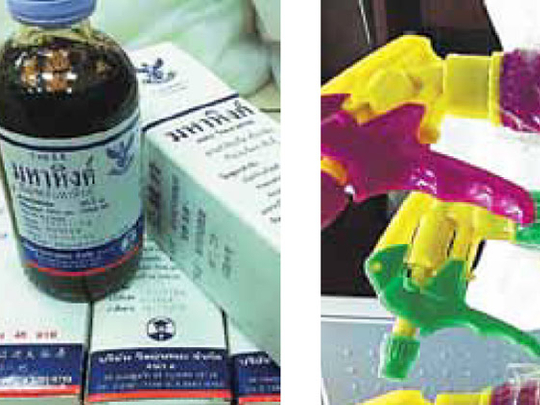
Abu Dhabi: Despite repeated warning from municipal authorities and health professionals, the use of unlabelled and unsafe cosmetics continues to be a concern in the capital.
The Municipality of Abu Dhabi City has given warnings to three beauty salons and 18 centres catering to women in Abu Dhabi for violating public health standards.
While the exact violations were not specified in the statement, municipal inspectors typically issue warnings for severe health and safety violations, including the use of expired products, the addition of harmful chemicals to products and the use of unlicensed procedures, including laser techniques, in beauty parlours.
The recent violations were detected as part of an inspection campaign on all 227 beauty salons and centres in Abu Dhabi city. The inspections were conducted in the last few days of Ramadan in order to ensure that the facilities, which serve a large number of customers before Eid Al Fitr, complied with health and safety standards.
Nearly 140 kilogrammes of cosmetics were also seized by municipality inspectors as they did not have product labels, or were labelled in foreign languages without being translated into Arabic or English.
Speaking to Gulf News, Dr James Zacharia, dermatologist and cosmetologist at Lifeline Hospital in the capital, explained the risks of using cosmetics from unknown sources.
“Products which do not mention the component ingredients could contain harmful elements that lead to irritation of the skin and even swelling of the eyeballs. Some patients even experience breathing difficulties. In addition, certain cosmetics contain steroids that create a temporary glow on skin, but with prolonged use, these items lead to skin thinning, the visibility of blood vessels and a permanently aged look,” Dr Zacharia warned.
Cosmetic reactions
“Nearly five to ten per cent of the patients I see suffer from cosmetic reactions,” he added.
While women are most likely to use unsafe creams, foundations and eyeliners, men usually have reactions from using harmful hair dyes. The doctor therefore advised residents to only use products after checking their labels. He also said that it is easier for doctors to prescribe treatments if they can read product labels.
“Most often, patients bring their products with them but they cannot even read the label,” Dr Zacharia said.
Khalifa Al Rumaithi, director of public health at the municipality, said municipal inspections will continue to be undertaken on beauty salons at periodic intervals throughout the year.
“In addition to detecting any violations, these inspections are also aimed at educating salon staff on the recommended health and safety practices,” Al Rumaithi said.
The official also warned that violations can result in action being taken against facilities.
“If harmful materials are added to cosmetic products, all tampered items will be immediately confiscated and legal action will be taken against the facility. These can include hefty fines, a cancellation of the trade licence or even closing down the centre,” he added.
In 2011, the municipality confiscated and destroyed nearly two tonnes of harmful cosmetic products from women’s salons and men’s barber shops. 1,489 violations were also recorded by municipal inspectors.












